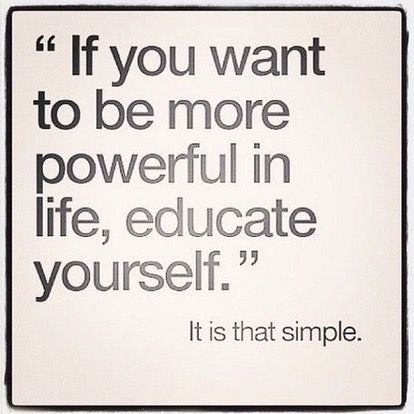“Unleashing the Transformative Power of Education: A Catalyst for Personal and Societal Advancement”
Introduction:
In the tapestry of human progress, education emerges as the golden thread weaving through the fabric of societies. Beyond the confines of classrooms and textbooks, education stands as a powerful catalyst, shaping the destinies of individuals and fostering the evolution of entire communities. In this exploration of the power of education, we delve into its multifaceted impact, from personal empowerment to societal transformation.

Body:
-
Economic Mobility and Prosperity:
Beyond the realm of personal development, education is a cornerstone of economic mobility. It serves as a gateway to better employment opportunities, higher income levels, and increased economic prosperity. A well-educated workforce not only enhances individual financial well-being but also contributes to the overall economic growth of a nation. -
Empowering Individuals:
Education serves as a potent tool for personal empowerment, equipping individuals with the knowledge, skills, and perspectives necessary to navigate the complexities of life. It is the key that unlocks doors to opportunities, enabling individuals to discover their potential and pursue their aspirations. Whether in formal institutions or informal settings, the process of learning instils confidence, critical thinking, and a sense of agency. -
Social Harmony and Inclusion:
Education is a powerful force in promoting social harmony and inclusion. By providing a common platform for diverse individuals to interact and learn together, it breaks down societal barriers, fostering understanding and tolerance. Inclusive education systems nurture empathy, reduce prejudices, and create a foundation for cohesive and harmonious communities. -
Catalyst for Gender Equality:
Education plays a pivotal role in challenging and dismantling gender disparities. When girls and women have equal access to education, it transforms societal norms and perceptions. It empowers women to participate more fully in social, economic, and political spheres, contributing to a more balanced and equitable society. -
Cultivating Critical Thinkers:
At its core, education is about more than the accumulation of facts; it is about cultivating critical thinkers. Through exposure to diverse ideas, analytical thinking, and problem-solving exercises, education nurtures individuals who can navigate an ever-changing world with adaptability and creativity. This capacity for critical thinking becomes the bedrock for innovation and progress. -
Global Citizenship and Cultural Understanding:
In an increasingly interconnected world, education fosters global citizenship. It encourages individuals to understand and appreciate diverse cultures, perspectives, and global challenges. This global awareness is instrumental in cultivating a sense of responsibility towards the broader human community and promoting collaborative efforts to address pressing global issues. -
Environmental Stewardship:
Education is a powerful tool in promoting environmental awareness and sustainability. It equips individuals with the knowledge needed to understand the impact of human activities on the environment and encourages responsible practices. Educated individuals are more likely to engage in environmentally friendly behaviours and advocate for sustainable policies. -
Technological Advancements and Digital Literacy:
The 21st century is marked by rapid technological advancements. Education not only adapts to these changes but also equips individuals with essential digital literacy skills. The ability to navigate the digital landscape is crucial for success in both academic and professional realms, and education serves as the bridge to ensure that individuals are not left behind in the digital revolution.
Conclusion:
In conclusion, the power of education is a force that reverberates through every layer of society. From individual empowerment to societal advancement, education is the cornerstone of progress. As we recognize its transformative potential, it becomes imperative to ensure equitable access to quality education for all. By doing so, we pave the way for a future where the transformative power of education is harnessed by individuals and societies alike, creating a world characterized by enlightenment, empowerment, and collective flourishing.

Example of Power of Education
Example: 1
Let’s consider the real-life example of Malala Yousafzai, a Pakistani education activist and Nobel laureate. Malala’s story exemplifies the transformative power of education on both an individual and societal level.
Malala was born in the Swat Valley of Pakistan, where the Taliban insurgency sought to restrict girls’ access to education. Despite the challenging circumstances, Malala’s father, Ziauddin Yousafzai, a prominent educational activist, encouraged her to pursue an education. Malala, with the support of her family, defied the Taliban’s ban on girls attending school and continued her education.
In 2012, at the age of 15, Malala survived an assassination attempt by the Taliban for her advocacy of girls’ education. This event catapulted her onto the global stage, becoming a symbol of resilience and the power of education to overcome adversity.
Malala’s commitment to education did not waver. She continued her studies and became a global advocate for girls’ education. In 2014, Malala became the youngest-ever recipient of the Nobel Peace Prize, jointly awarded to her and Kailash Satyarthi, an Indian children’s rights activist. The recognition amplified her voice and mission.
Malala’s story highlights several aspects of the power of education:
- Personal Empowerment: Despite facing threats and violence, Malala’s education empowered her with the knowledge and confidence to speak out for her rights and the rights of others. Education became a source of strength, resilience, and personal development.
- Social Change: Malala’s advocacy transcended her journey. It sparked a global conversation about the importance of education, especially for girls facing barriers. The “Malala Fund” was established to support girls’ education worldwide, demonstrating how one person’s commitment to education can lead to broader societal change.
- International Impact: Malala’s story resonated globally, inspiring individuals and leaders to prioritize education. Her influence reached the highest levels of government, encouraging policymakers to address issues related to education and gender equality.
- Symbol of Resistance: Malala became a symbol of resistance against oppression and a testament to the transformative power of education even in the face of adversity. Her story inspired countless individuals to stand up for their right to education.
This example illustrates that education is not merely an academic pursuit but a force that can drive individual empowerment, challenge societal norms, and inspire movements for positive change. Malala’s journey exemplifies how education can be a catalyst for personal and societal transformation, breaking down barriers and paving the way for a more equitable and enlightened world.
Example: 2
Consider the example of Jaime Escalante, a Bolivian educator known for his transformative impact on students in the United States. His story was popularized in the 1988 film “Stand and Deliver.”
Jaime Escalante, born in La Paz, Bolivia, was a mathematics teacher who immigrated to the United States in the 1960s. He faced numerous challenges, including language barriers and cultural differences, but his passion for teaching and belief in the power of education drove him to make a significant impact.
Escalante began teaching at Garfield High School in East Los Angeles, a school known for its troubled environment and low academic performance. Despite the prevailing skepticism about the students’ abilities, Escalante set out to prove that, given the right resources and encouragement, students from disadvantaged backgrounds could excel in advanced mathematics.
In 1978, Escalante initiated an Advanced Placement (AP) Calculus program at Garfield, a course typically reserved for elite schools. He faced resistance and skepticism from colleagues, parents, and even students. However, Escalante’s dedication and innovative teaching methods began to yield remarkable results.
Under his guidance, a group of initially struggling students not only learned calculus but excelled in the AP Calculus exam. In 1982, 18 students from Escalante’s class passed the notoriously difficult AP Calculus test, an accomplishment that drew national attention.
The success of Escalante’s students challenged stereotypes and demonstrated the power of education to uplift individuals and communities. The story of his students’ achievements became a beacon of hope, showcasing that with quality education, dedicated teachers, and a supportive environment, students from any background could achieve academic excellence.
Escalante’s legacy extends beyond individual success stories. His approach to teaching underscored the importance of high expectations, hard work, and creating a positive learning environment. His methods inspired other educators to believe in the potential of their students, leading to a broader conversation about educational equity and the power of effective teaching.
This example illustrates how education, when guided by passionate and dedicated educators, has the transformative power to break down barriers, challenge societal expectations, and empower individuals to achieve their full potential. Jaime Escalante’s impact on his students remains a testament to the enduring power of education in shaping lives and fostering success.
